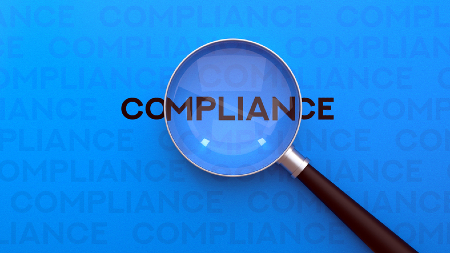Is Compliance Strategically Important to Measure?
by Stacey Barr |Is compliance an improvement to organisational performance, or just business as usual? Either way, should we measure compliance?

Compliance in the business world is generally about following laws or regulations, and meeting any standards or codes or practices, that are relevant to your industry or sector. They can range from tax law to data management standards to
safe work practices.
Compliance is not everyone’s favourite thing to give time to. It can feel like bureaucracy, especially when its driving purpose is not fully understood and it seems like all you’re doing is dotting i’s and crossing t’s.
But compliance is important to reduce or limit the risks that an organisation is exposed to, like fines, lawsuits, and work stoppages. Fundamentally, compliance is about meeting the basic promises and expectations of all stakeholders in the organisation, to maintain their support for the organisation.
When is compliance just business-as-usual?
Compliance exists to protect society and the stability of the system within which the organisation operates. That makes it an important part of the organisation’s performance. If something is important in how the organisation performs, it most likely should be measured.
If an organisation has the capability and capacity to smoothly manage its compliance, then it’s business-as-usual (not performance improvement). And in this case, compliance might be monitored with just a few routine measures with the purpose of alerting management to any out-of-the-ordinary changes in compliance performance.
When is compliance strategically important?
Compliance can become strategically important, when one of two situations come up:
- Drift – when business operations slacken too far away from being compliant.
- Shift – when new compliance standards or requirements need non-trivial changes in business operations.
How strategically important the drift or shift is depends on the risk of inaction and the cost of change. An organisation that does a
comprehensive SWOT analysis as part of their strategic planning will include the high-risk and high-cost drifts and shifts in compliance in its strategic goals.
The first part to measure strategically important compliance is to measure the specific drift or shift at the level of strategic goal. The question this measure should answer is “how far away is our organisation from fully compliant?”
The next part happens when strategy is cascaded.
Align compliance drifts and shifts to strategy.
The cascading of strategy finds the important drivers of the compliance drift or shift. These drivers are measured at the level of the organisation’s business units and teams. The question these measures contribute to answering is “where in our organisation’s operations do compliance systems, processes and behaviours need to be changed?”
Strategic initiatives (actions) to close the drift or shift can then be aligned to those performance measures they are designed to impact.
One way to see this alignment of compliance results throughout the organisation is with a PuMP Results Map. This video will show how the alignment happens as strategy is cascaded:
Improving compliance is like improving anything.
Most goals are choices, they are self-imposed and optional. Compliance is more like commands; it’s also a goal, but it’s externally-imposed and not optional.
But any goal we pursue should equate to specific real-world results. One of the important ways to know if we’ve achieved a goal successfully, is to measure those results. And measurement is therefore just as important with compliance-related goals, as with any other.
Compliance can be strategically important to measure if there is a drift away from required compliance, or a shift in the level of required compliance. [tweet this]
Connect with Stacey
Haven’t found what you’re looking for? Want more information? Fill out the form below and I’ll get in touch with you as soon as possible.
167 Eagle Street,
Brisbane Qld 4000,
Australia
ACN: 129953635
Director: Stacey Barr




